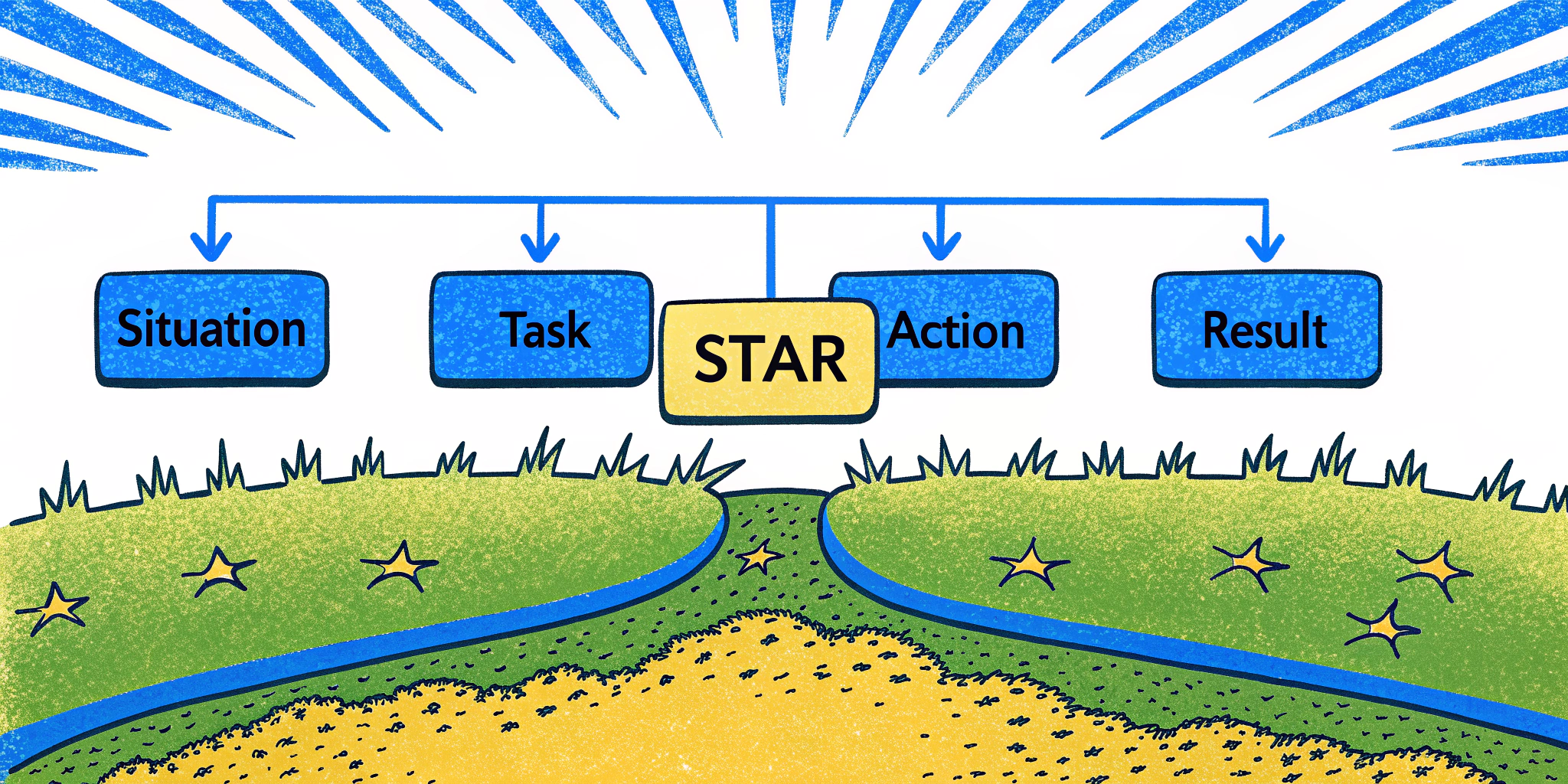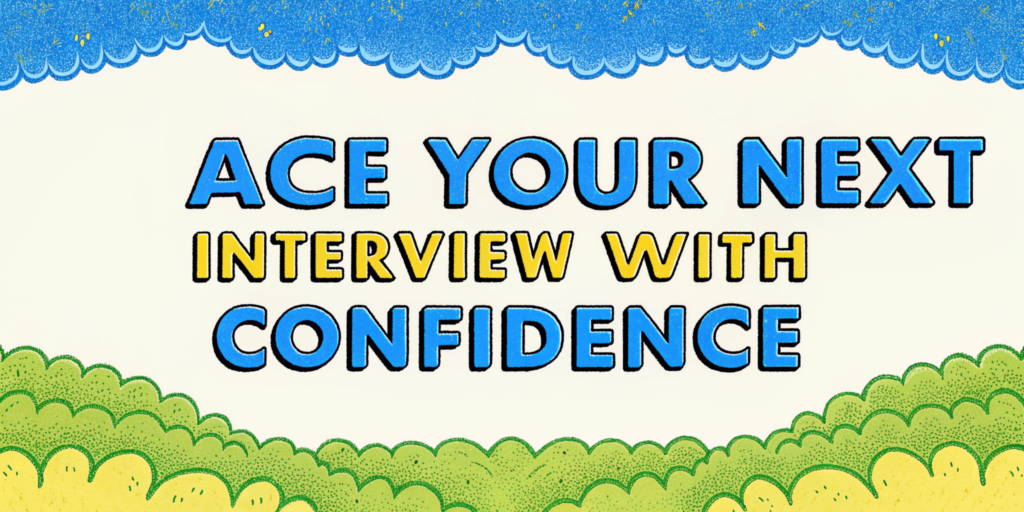When you’re in an interview, everything is going smoothly, and then it happens — the interviewer asks: “Can you tell me about your relationship-building skills?” You saw it in the job description and anticipated it, but now it’s up to you to demonstrate your ability to work well with others — be it coworkers, stakeholders, customers, or even temporary teammates.
So, the big question is: How do you answer this effectively to stand out from the competition while proving you’re the perfect fit for the role? Let’s break it down step by step.
💡 Why Do Employers Ask About Relationship Skills?
Building relationships isn’t just a “nice-to-have” skill — it’s a critical factor in almost every profession. Whether you’re working on a team project, managing clients, or collaborating with stakeholders, employers want to know how you approach these connections to drive success.
✅ Here’s what they’re evaluating:
- Collaboration skills: Can you work cohesively with teammates or stakeholders to achieve goals?
- Communication abilities: Are you adept at explaining ideas, solving conflicts, and building rapport?
- Reliability: Can others trust you to deliver results, keep your word, and maintain professionalism?
Remember, they’re looking for concrete proof through your experiences. Telling them, “I’m a people person,” won’t cut it. Instead, dive into specifics.
🌟 How to Structure Your Answer (The STAR Method)
Using the STAR method (Situation, Task, Action, Result) is a foolproof way to nail relationship-related interview questions.
- Situation: Set the scene; context matters!
Example: “At my previous job as a Sales Associate, our team was struggling to retain repeat customers.” - Task: Highlight the challenge or goal related to relationship-building.
Example: “I was tasked with improving customer retention while increasing sales consistency.” - Action: Share the specific strategies you used to address the task.
Example: “I created personalized follow-ups for our customers, analyzed purchase histories to recommend products, and trained my team on active listening.” - Result: Conclude with a measurable outcome or positive effect.
Example: “Our repeat customer rate increased by 15% in six months, and I received recognition from senior management for my efforts.”
By weaving a detailed story, you can demonstrate tangible proof of successful relationship-building.
🧩 Examples of Relationship-Building Scenarios
When tailoring your response, think about who you build relationships with — coworkers, external stakeholders, or clients. Here’s how to break it down for different scenarios.
🔗 Building Long-Term Relationships
Long-term relationships (personal or professional) demonstrate your ability to nurture trust over time.
Example Answer:
“I believe a lasting relationship is built on trust, understanding, and reliability. For instance, a few years ago, I worked in an IT support role. One of our major stakeholders had frequent concerns about project delays. I made it a priority to take ownership of communication by providing bi-weekly updates and proactively outlining project timelines. As a result, trust was restored, and they chose to renew their contract with us for an additional three years.”
Takeaway: Employers value consistency and commitment. Long-term examples show your reliability.
⚡ Handling Short-Term Interactions
Short-term relationships call for building rapport quickly while ensuring the interaction is effective. This could involve working with customers, clients, or colleagues on temporary assignments.
Example Answer:
“In my retail position, I often had just one interaction to make customers feel confident in their purchase decision. Instead of simply pitching a product, I engaged them with questions about their needs and offered honest comparisons. By the time they left the store, they felt informed and valued, which led to frequent referrals — increasing our monthly foot traffic by 20%.”
Takeaway: Showing adaptability in short-term engagements reflects agility and communication skills employers value highly.
🎯 Tips for Crafting the Perfect Answer
- Stay Authentic: Be genuine in your examples. Employers can spot overly rehearsed responses a mile away.
- Focus on Impact: Always link your relationship-building efforts to measurable outcomes, such as increased customer retention, improved team efficiency, or successful project completion.
- Demonstrate Versatility: Balance examples of both long-term and short-term relationship-building skills to showcase flexibility.
- Practice Active Listening: In interviews, listen to the question! Address how your skills align with the company’s needs.
| Do’s | Don’ts |
|---|---|
| Use specific examples | Speak in vague generalities |
| Emphasize teamwork and collaboration | Brag about working solo |
| Show empathy and mutual respect | Disregard others’ perspectives |
⚠️ Common Mistakes to Avoid
- Focusing only on yourself and not the relationship.
- Forgetting to explain the actionable steps you took.
- Using irrelevant or unrelatable examples.
- Overlooking the “result” in the STAR method — impact matters!
🛠️ Boost Your Interview Preparation
Let’s face it — practice makes perfect. But what if you could simulate a real-world interview experience while receiving AI-driven feedback? Here’s where Ninjafy AI becomes your secret weapon.
Why Use Ninjafy AI?
- Authentic Mock Interviews: Simulates industry-specific questions, including relationship-building ones, giving you a real sense of the conversation.
- Personalized Guidance: Ninjafy’s Personal Model™ learns from your career history to help you craft responses that reflect your unique strengths.
- Live Feedback: InvisibleEyeTrack™ ensures your communication style (e.g., eye contact during virtual interviews) radiates confidence.
Fun Fact: 39% of Ninjafy AI users receive their dream offers, thanks to personalized coaching and tailored feedback. It’s like having your own interview guru! 🚀
Trust me, using Ninjafy has been a game-changer for me personally. Preparing for client interviews as a consultant used to feel overwhelming, but the AI feedback gave me actionable tips to confidently navigate tricky questions — like relationship-building!
📝 Commonly Asked Questions About Relationship-Building
1. What are you good at?
Answer by tying your strengths to real-world examples, such as teamwork or conflict resolution.
2. Can I use building trust as one of my weaknesses?
This can be tricky. Instead of citing it as a weakness, show how you’re actively improving it (e.g., taking courses on empathy or communication).
3. How do I rate myself in relationship-building skills?
Be honest and back it up with proof. “I’d rate myself an 8/10 because I consistently improve my skills by attending workshops and applying active listening in work scenarios.”
🎉 Final Thoughts
When faced with the “building trusting relationships” interview question, remember that preparation and detail are your best allies. Use the STAR method, highlight both short-term and long-term examples, and demonstrate measurable outcomes. Most importantly, practice.
If interviews still feel daunting, remember: you don’t have to go it alone. AI tools like Ninjafy AI can help you crush those nerve-wracking moments. So take charge, and ace that interview!




